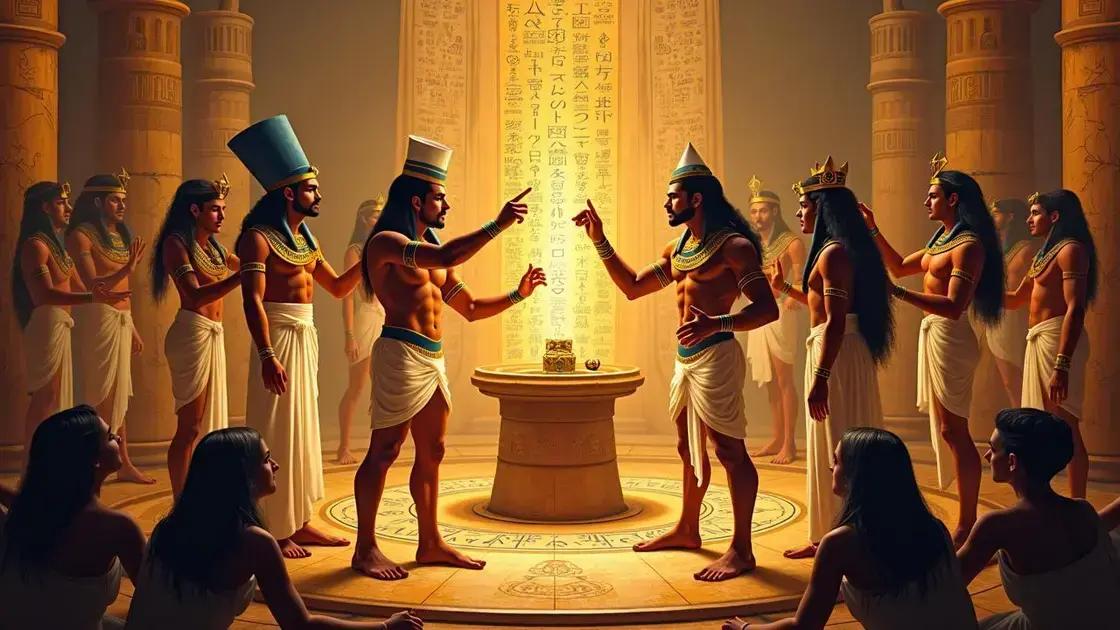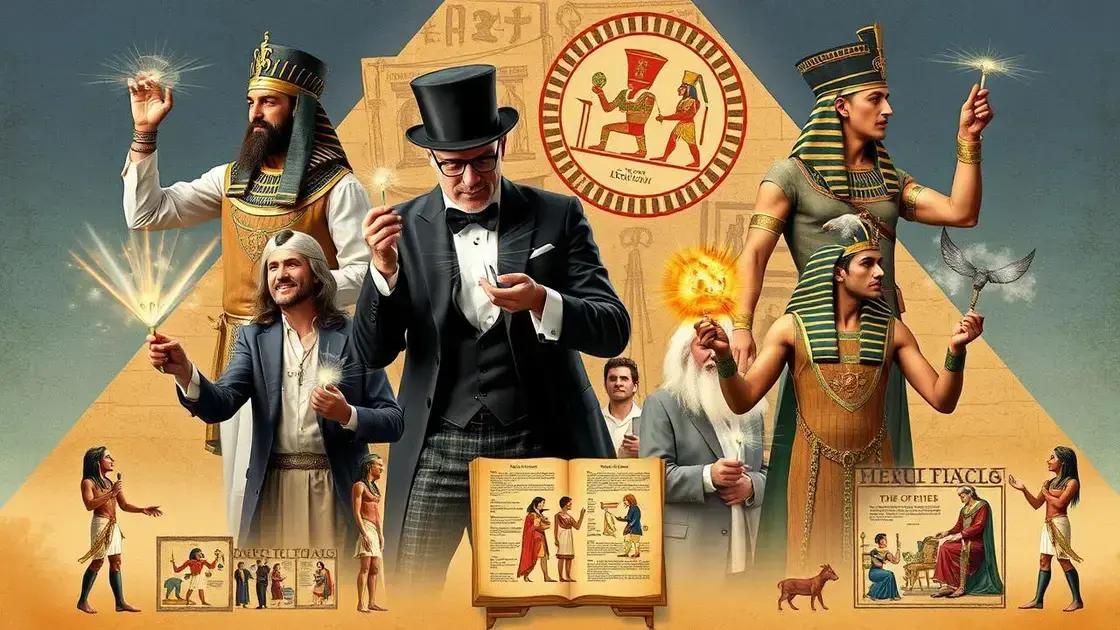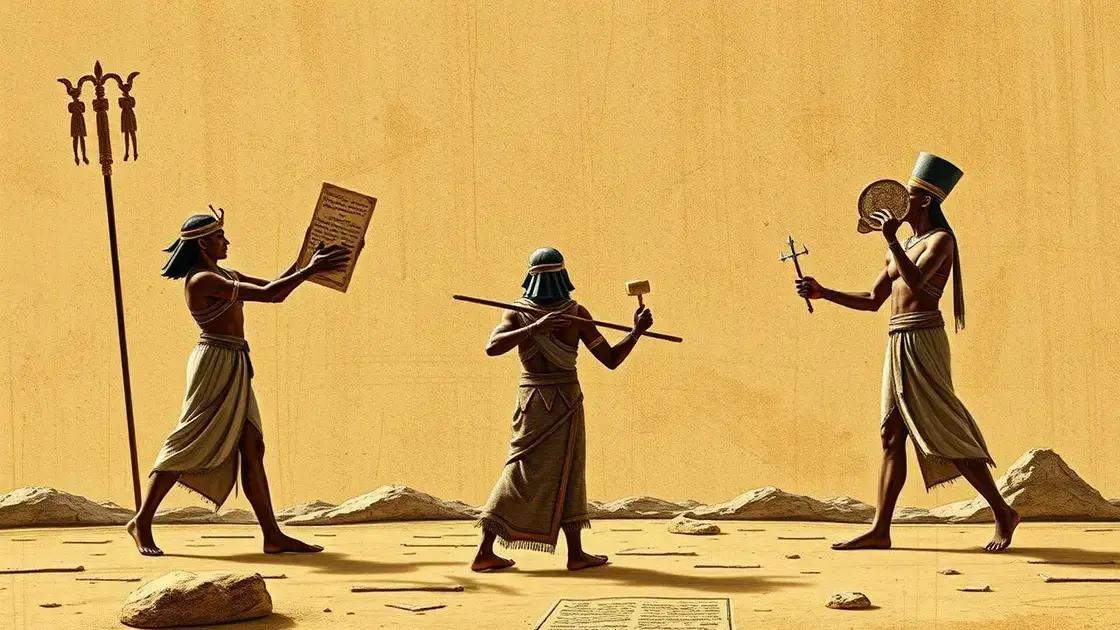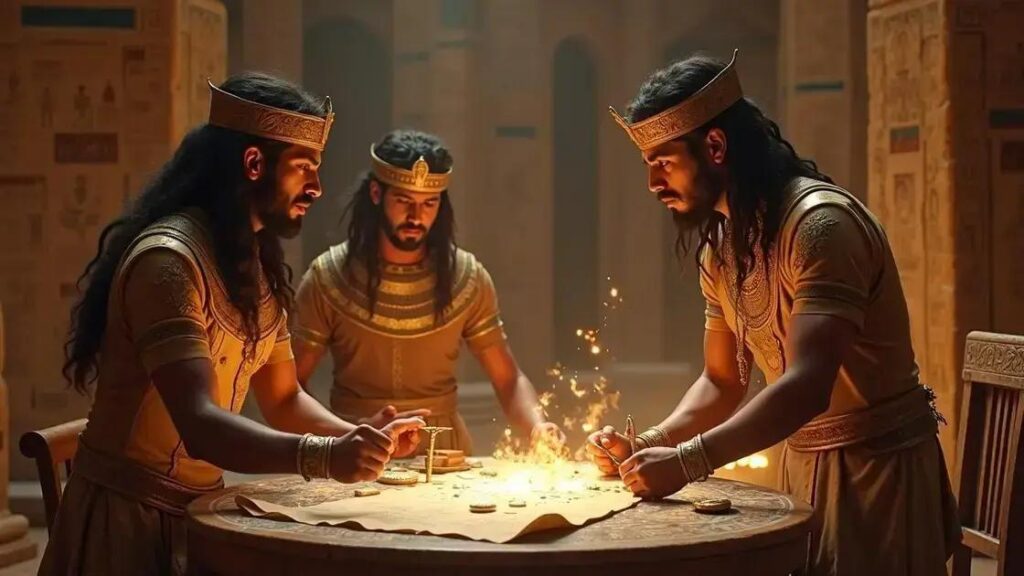The tricks of the Egyptians, deeply rooted in history, combine cultural significance and skillful execution. These ancient practices influenced modern magic, highlighting a blend of entertainment and profound belief in the supernatural, while carefully distinguishing between myths and factual techniques.
The fascination with ancient Egyptian tricks has captivated many. Is the Trick of the Egyptians backed by professionals? These intriguing techniques utilized by the ancients have left many wondering about their authenticity and efficacy. In this article, we will delve into the historical significance of these tricks, explore modern-day professional perspectives, and analyze the myths and facts that surround this age-old question.
Historical Significance of Egyptian Tricks

The historical significance of Egyptian tricks is as intriguing as the pyramids themselves. These tricks were not merely for entertainment; they served important cultural and spiritual purposes. Ancient Egyptians believed in the power of magic and illusion, which played a crucial role in their daily lives and religious practices.
Magic in Egyptian Culture
Magic was a key element of Egyptian society. It was thought to be divinely inspired and was associated with the gods. Many acts of magic were performed by priests during ceremonies, aimed at healing, protection, and communication with deities. This blending of magic and routine life shows the deep connections Egyptians had with their practices.
Techniques and Tools Used
Egyptians utilized various tricks and tools. From sleight of hand to clever use of objects, they created illusions that amazed audiences. Techniques such as illusionary acts and storytelling were common. These tricks would often tell a story conveying moral lessons, history, or religious beliefs. The artifacts left behind show the sophistication and skill involved.
Influence on Future Generations
The tricks and techniques of ancient Egyptians have influenced many cultures. They laid the groundwork for modern magic and performance arts. Contemporary magicians often look back at these ancient practices for inspiration, proving that the legacy of Egyptian tricks continues to resonate through time.
Modern-Day Professional Perspectives

In today’s world, many professionals analyze the tricks of the Egyptians from various perspectives. Some experts focus on the historical context, aiming to understand how these techniques were developed and performed. Others are interested in the practical applications of these tricks in modern entertainment and magic.
Historical Experts
Historians study ancient texts and artifacts to piece together how Egyptians used illusions. They suggest that these tricks were not just for entertainment but held strong meanings tied to religion and culture. By examining hieroglyphs and temple reliefs, it becomes clear that magic was interwoven into their daily lives.
Modern Magicians
Modern-day magicians often draw inspiration from Egyptian tricks. They utilize similar techniques, adapting them for new audiences. Interviews with magicians reveal they study the past to master the art of illusion. Techniques such as misdirection and psychological tricks can often be traced back to ancient practices.
Cultural Anthropologists
Cultural anthropologists also provide insight. They look at how these tricks influenced different civilizations, noting that tricks spread through trade and conquest. As a result, elements of Egyptian magic can be found in cultures around the world, highlighting a broad impact that transcends time.
Analyzing the Myths and Facts

When exploring the tricks of the Egyptians, it’s essential to sift through both myths and facts. Many tales about ancient Egyptian magic have been passed down through generations, leading to misunderstandings about their practices. Some myths claim that Egyptians used only supernatural powers, while in truth, many tricks relied on clever techniques.
Common Myths
One common myth suggests that all Egyptian magic came from the gods. While they did believe in divine influence, most tricks involved skilled performers. These entertainers trained rigorously to master their art, blending knowledge of psychology and illusion rather than relying purely on divine will.
Understanding the Facts
Contrary to popular belief, many tricks were designed for practical purposes. For example, they were often used in healing rituals or public ceremonies. Evidence shows that Egyptians understood the importance of audience perception and tailored their performances accordingly. This skill reveals a sophisticated understanding of human behavior.
Connections to Reality
Historical documentation also supports the idea that ancient Egyptian tricks have influenced modern entertainment. By analyzing artifacts and writings, researchers have discovered that techniques used in ancient times laid the groundwork for current performance art. Understanding this connection helps clarify how deeply entrenched these practices are in our cultural heritage.
In Conclusion: The Impact of Egyptian Tricks
The exploration of ancient Egyptian tricks reveals a rich tapestry of history, skill, and cultural significance. These practices were not solely based on mysticism but involved talent, understanding, and innovation.
Modern perspectives highlight the connection between ancient techniques and contemporary performance art, demonstrating how the legacy of Egyptian magic continues to shape our understanding of illusion and entertainment today.
By analyzing the myths and facts surrounding these tricks, we gain a clearer picture of their importance in history and their influence on modern magic. Recognizing this impact encourages us to appreciate the artistry and tradition that underpins our fascination with magical performances.
FAQ – Frequently Asked Questions about Egyptian Tricks
What are Egyptian tricks?
Egyptian tricks refer to the magical performances and illusions used by ancient Egyptians, often for entertainment or religious purposes.
How did ancient Egyptians perform their tricks?
They used a combination of skillful techniques, clever misdirection, and psychological understanding of their audience to create illusions.
Did Egyptians really believe in magic?
Yes, magic held significant cultural and spiritual importance in ancient Egypt, often intertwined with their religious practices.
What influence do Egyptian tricks have on modern magic?
Many modern magicians draw inspiration from ancient Egyptian techniques, blending them into contemporary performance art.
Are there myths surrounding Egyptian magic?
Yes, many myths exist, such as the belief that Egyptian magic was purely supernatural, while in reality, it involved clever craftsmanship and performance skills.
How can we learn about ancient Egyptian tricks today?
Researching historical texts, artifacts, and studying the techniques of modern magicians can provide valuable insights into the practices of ancient Egyptians.













